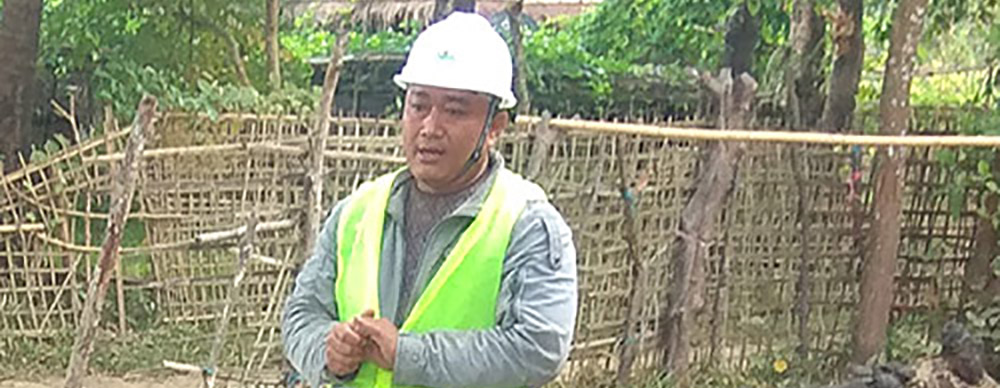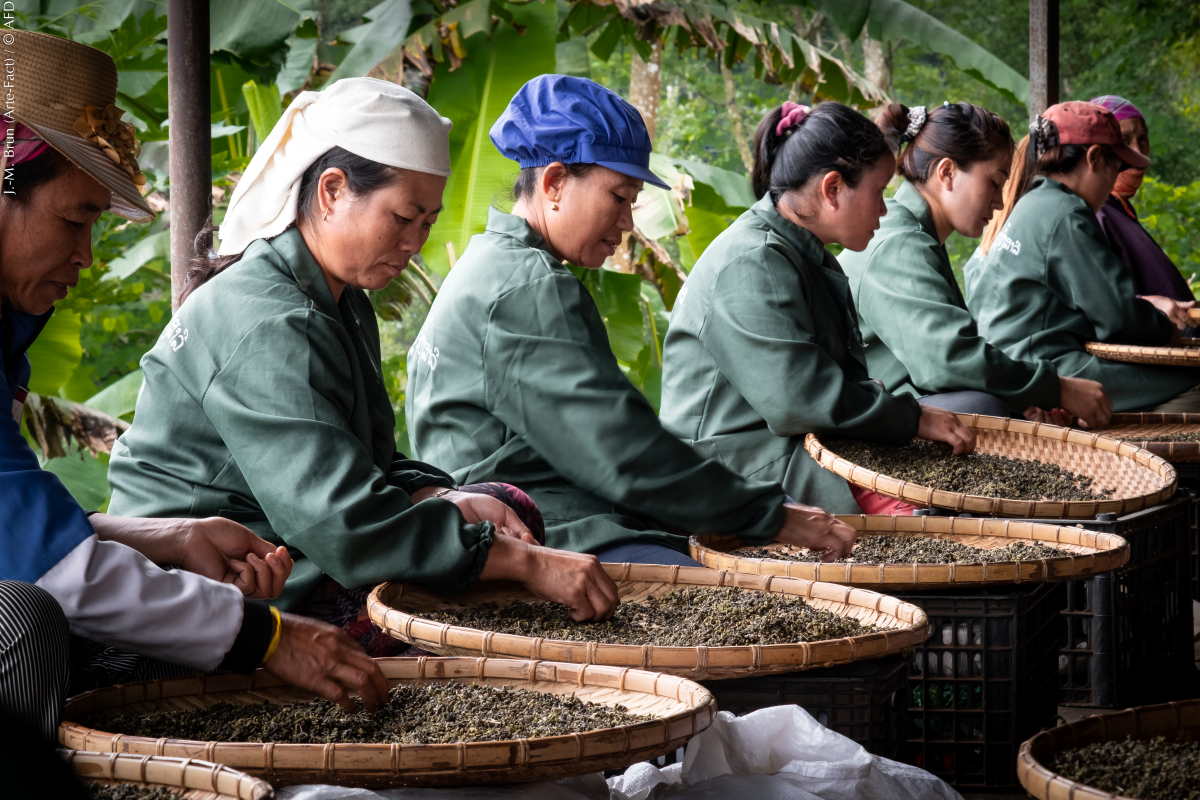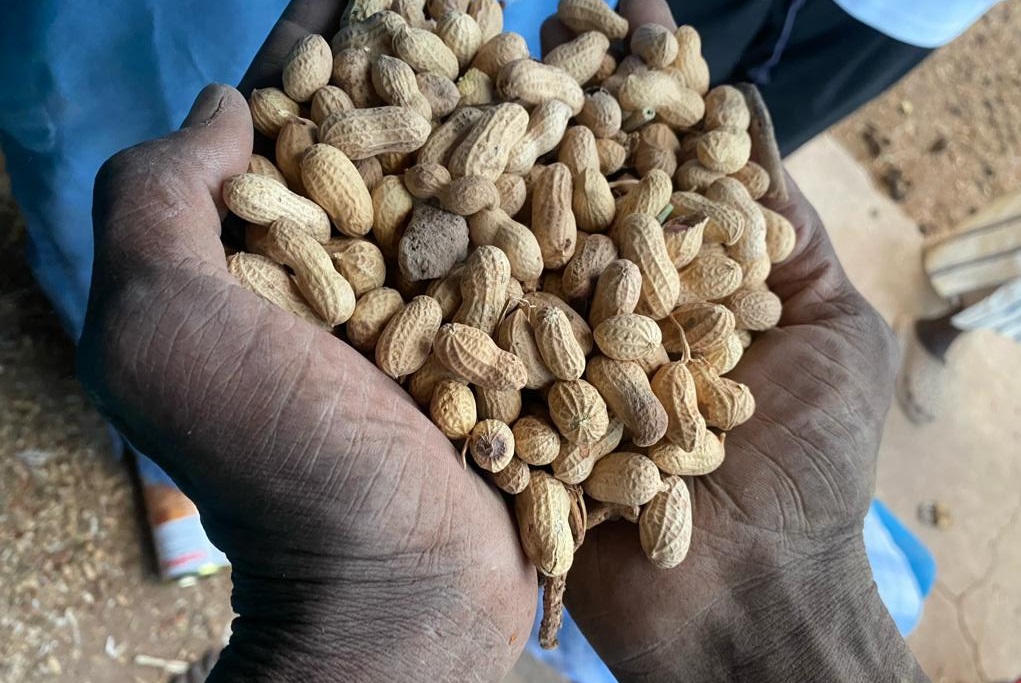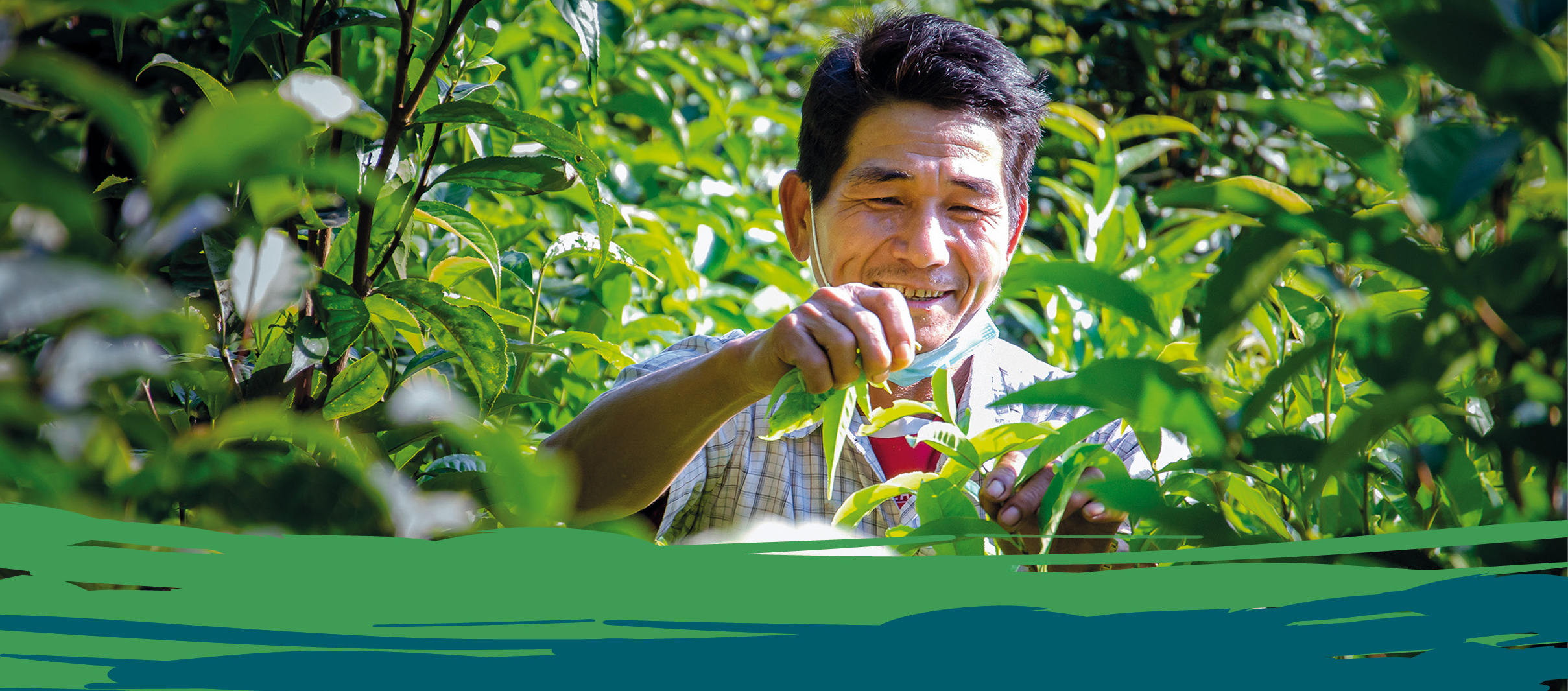Kyaw Htwee is chairperson of the Peasants’ legal aid network (PLAN), a non-profit organisation founded in 2014 and based in Mrauk U, in Myanmar. The organisation aims to support vulnerable rural populations with legal questions and strengthen their capacities to defend their own rights, and also to promote more sustainable agricultural practices. Since 2016, as part of the NRSC project, GRET has been working with PLAN in the townships of Kyauktaw and Paletwa.
Why did you set up this network?
Our organisation was founded following a clear observation: small farmers in Myanmar are not sufficiently aware of land ownership issues and are vulnerable to land confiscation. In addition, these farmers do not have many opportunities to study and perfect their agricultural techniques, or to envisage developing their farms. Low yields, lack of profits and outlets, and poor quality of harvests can also drive them to leave their land.
Few organisations work in the agricultural sector in Myanmar, whereas this activity is one of the main livelihoods in Rakhine State and in the country as a whole. So, we set up PLAN in order to minimise land pressure on farmers and strengthen their capacities, by improving their agricultural knowledge and skills. We are also seeking to develop rural communities by supporting the creation of sustainable outlets, in particular via dissemination of agricultural marketing knowledge. Lastly, we want to support the construction of a solid farmers’ network that can fight for farmers’ rights.

To what extent has the partnership with GRET strengthened your organisation’s operational capacities?
This partnership made it possible to improve PLAN’s budget management, reporting and administration capacities. Our teams now have greater knowledge of agroecology, awareness-raising on nutrition and market gardening. They are also able to provide reliable technical support to farmers for the manufacture of bio-inputs or for fungiculture (editor’s note: cultivation of edible mushrooms).
Thanks to GRET, our teams perfected their abilities in terms of management and coordination of community resources, pedagogy, project management, monitoring and follow-up with farmers.
How does the NRSC project contribute to improving vulnerable populations’ livelihoods and resilience in Chin and Rakhine States?
The NRSC project is very important for vulnerable populations targeted by the project in Kyauktaw and Paletwa. Thanks to the training proposed by GRET and its partners, farmers’ have increased awareness of the benefits of sustainable agriculture. They understand that agroecology makes it possible to reduce production costs, recognise the importance of farmers’ seeds and now produce their own inputs. Farmers have improved their skills and knowledge of agroecology, awareness-raising on nutrition, cultivation of mushrooms and pest and disease management. They can now share and extend their knowledge with other farmers, which benefits the population as a whole.
* The NRSC project is being implemented thanks to financial support from the European Union (EU). The content of this article is the sole responsibility of GRET and does not necessarily reflect the views of the EU.






